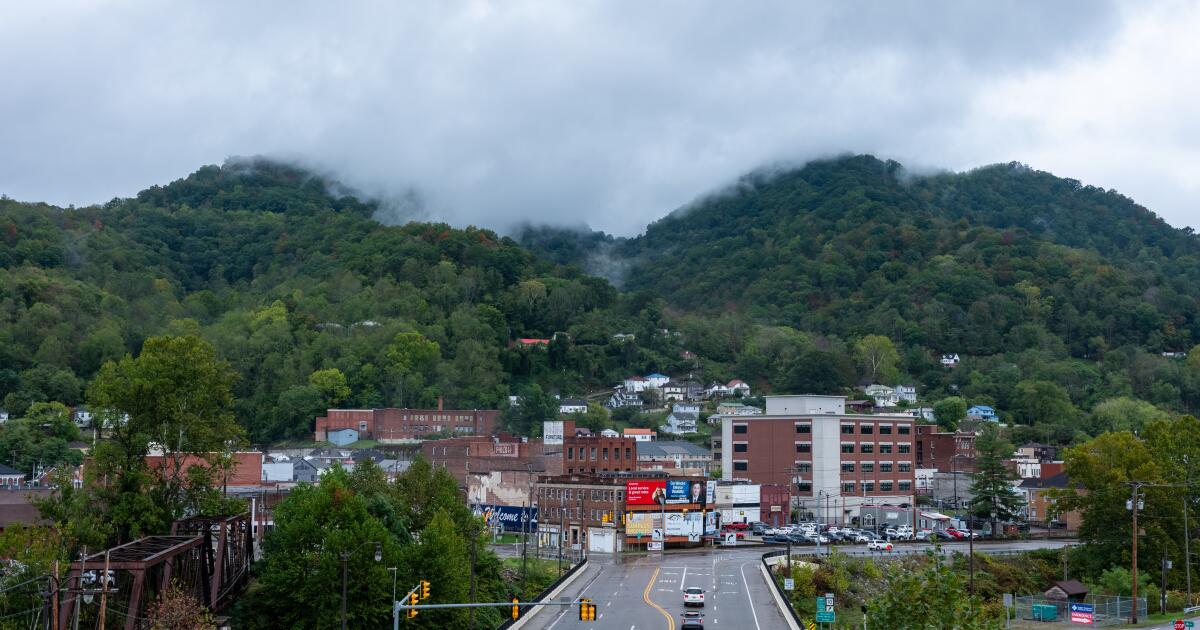Five generations of Vances gathered in West Virginia last month for a reunion, singing hymns and swapping stories in a quiet park hugged by towering green mountains waiting to burst into autumnal shades of orange.
JD Vance — the Republican vice presidential nominee who reunion attendees say is part of the family — was not among them.
“He is surely too ashamed to face any of us. Judas Iscariot would have a warmer reception,” said Terra Vance, an Appalachian activist who genealogy records show shares some ancestors with the politician.
Terra and JD Vance are distant cousins who have never met. They grew up in different states, with family lineage that intersected generations ago. But now, as the U.S. senator from Ohio leans on his Appalachian roots in his campaign for the White House, Terra Vance has garnered a following as a fiery and knowledgeable critic.
The 44-year-old disability rights nonprofit founder from Logan, W.Va. — population: 1,365 — presents herself as the “authentic hillbilly Vance” to thousands of online followers, swatting down stereotypes about the South as she gives an alternative version of what it means to be Appalachian.
In Island Creek near Logan, W.Va., a sign displays support of former President Trump and his running mate, JD Vance.
(Roger May / For The Times)
Aware that her views are unpopular in a region where “Trump-Vance” signs dominate the landscape, Terra Vance doesn’t post pictures of herself on social media and declined to be photographed for this article.
She sees JD Vance’s 2016 memoir, “Hillbilly Elegy,” and how he’s used his background to appeal to voters since as a disservice to her hometown and last name. In her view, his story blames people who have been exploited — in some cases by the coal mining and pharmaceutical industries — for their own exploitation while painting himself as special for escaping the same fate.
“He cosplayed a hillbilly and tokenized himself as the golden child who worked hard to overcome adversity,” Terra Vance said. “What he’s peddling now — what he is doing to other marginalized groups — is exactly what has always been done to us.”
Others have joined in since she started posting online. On her social media pages, where she shares facts about her Melungeon heritage — a lesser known mixed race rooted in Appalachia — and raises awareness about her neighbors’ lack of clean water access, residents of the region have called the vice presidential candidate a “shillbilly”; circulated a #heaintfromhere hashtag and joked that he’s the kind of guy that puts his cast iron skillet in the dishwasher.

Terra Vance, a distant cousin of Republican vice presidential candidate JD Vance, watches the debate at her brother and sister-in-law’s house in Logan County, W.Va.
(Roger May / For The Times)
In “Hillbilly Elegy,” a best-selling book that was made into a movie, Vance describes his unstable childhood in Ohio shaped by poverty and his mother’s addiction. His no-nonsense, gun-wielding grandmother from Kentucky serves as a memorable main character.
He laments the use of welfare programs he saw growing up and complains that people don’t work hard enough. As for his family’s circumstances, “the fault lies almost entirely with factors outside the government’s control,” he wrote.
That doesn’t sit right with Terra Vance, whose father — “a real Vance,” she says — worked in the coal mines for 40 years; where he once snapped his sternum when a mountain collapsed on him. He still struggles with black lung disease, she said, and joint pain from time spent crawling underground. He was laid off as the industry declined.
Terra Vance and JD Vance have more in common than a name. They both call their grandparents “mamaw” and “papaw”; they know what it’s like to be made fun of for where they’re from and they have both been shaped by towns that are shells of once-booming industries. For him, Ohio steel; for her, West Virginia coal.
The primary difference between them, Terra Vance says, is he is disconnected from what he calls his “cultural inheritance,” while she is a proud defender.
“Hillbilly Elegy,” to her, is an out-of-touch story about lazy Appalachian folk who made poor choices, and self-congratulations by the senator for pulling himself up by his bootstraps to get to the Ivy League and Silicon Valley.
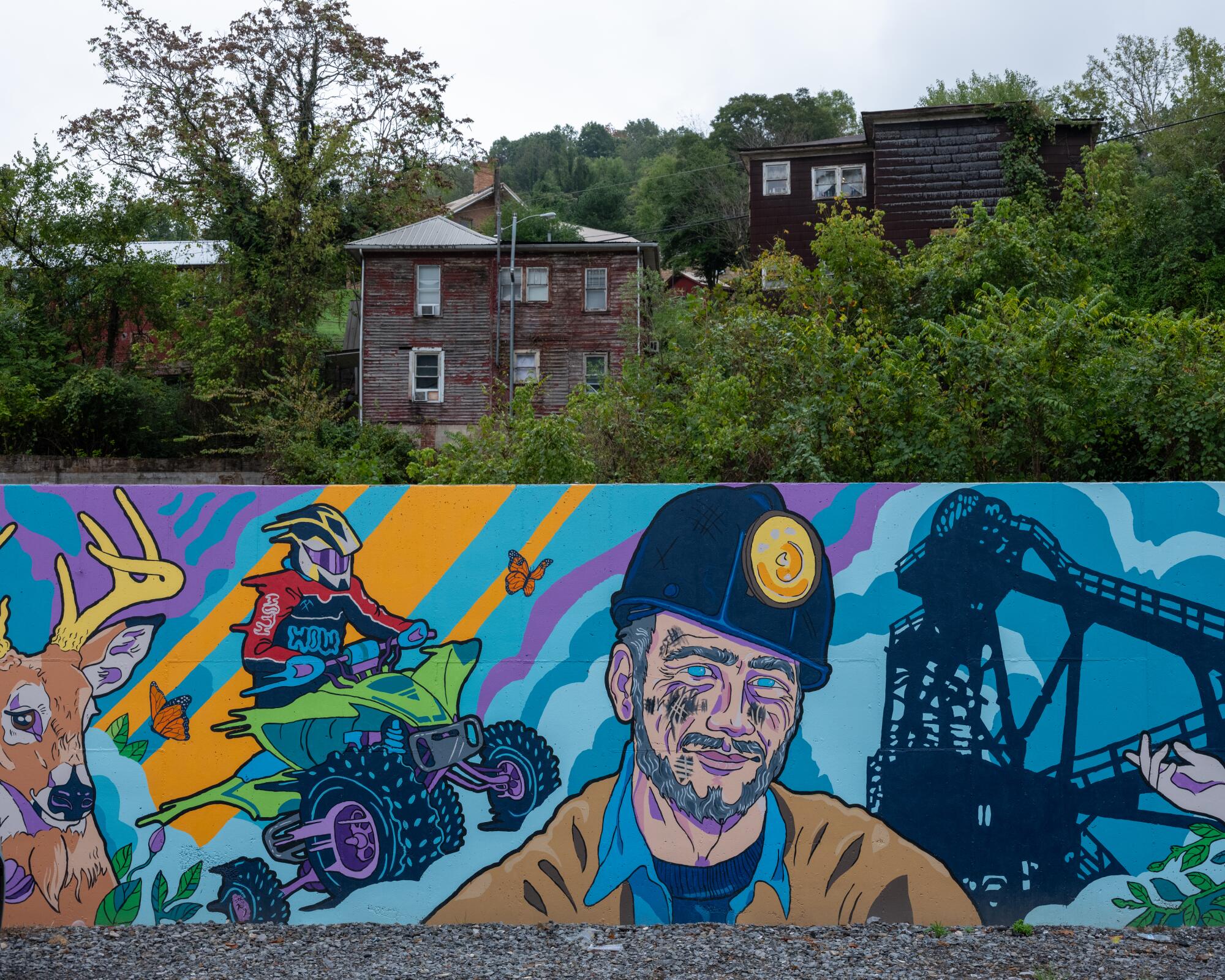
A mural featuring a coal miner in downtown Logan, W.Va.
(Roger May / For The Times)
She also takes issue with the fact that JD Vance never actually lived in Appalachia — he grew up in Middletown, Ohio, and spent summers with family in Kentucky — and was not born a Vance like her, but changed his name to his maternal grandmother’s last name.
“He blames poor people in Appalachia, where he has no lived experience, for their own decline,” she said.
When asked about his distant cousin’s criticism, a spokesperson for Vance said the senator “has always offered his and his family’s honest perspective.”
“While many share that perspective, some do not,” spokesperson Luke Schroeder said in an email. “That’s the nature of publishing your life story.”
It’s the stories of people like Bertie Vance that Terra Vance really wants the world to hear. Known as “Mamaw Bertie Lou,” Terra’s 96-year-old grandmother self-published her own memoir in 2020 called “Memories of Pine Creek.”
In it, the mother of seven tells her life story of growing up in deep poverty and working a job since she was 12 years old to help her family survive. She is proud of her father, who helped unionize coal miners, and is candid about abuse she suffered as a child. She condemns the racism she witnessed growing up and, despite her struggles, she writes that she had had a “blessed” life.
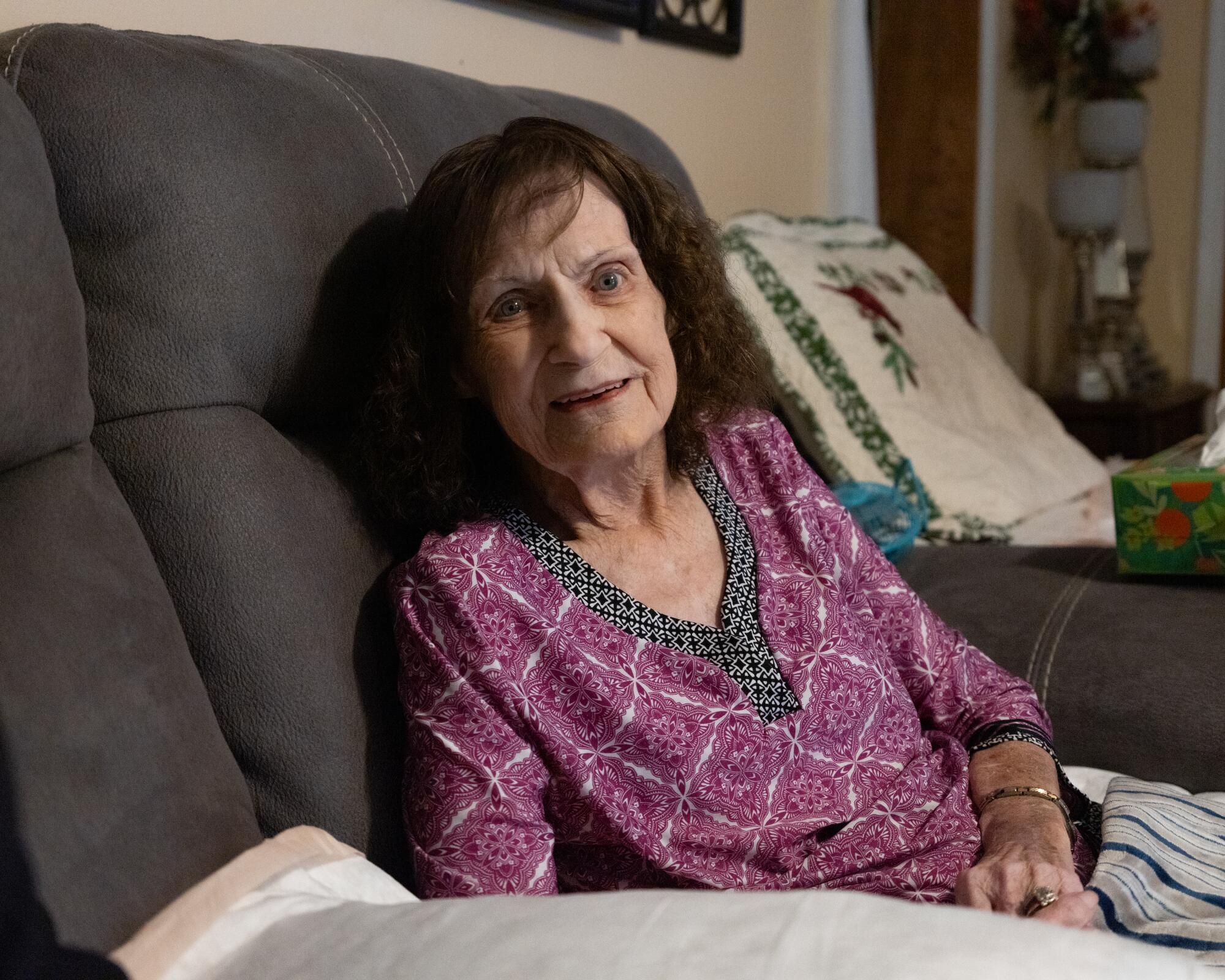
Terra Vance’s grandmother, Bertie Vance, 96, at her home in Logan County, W.Va.
(Roger May / For The Times)
The book may never wind up on a bestseller list or see the big screen, but Terra Vance said its lessons on empathy and perseverance are “the real hillbilly elegy.”
While a group of distant cousins of Democratic vice presidential nominee Tim Walz recently went viral for supporting Trump, Terra Vance’s criticism is not a reflection of family drama but of a broader Appalachian movement that has rejected JD Vance since the release of his memoir.
The Appalachian region is made up of 13 states, including parts of Ohio, Pennsylvania, Kentucky, Virginia, Tennessee and the Carolinas. West Virginia — where Terra Vance was born and raised — is the only entire state that wholly lies within Appalachia.
Meredith McCarroll co-authored a collection of essays called “Appalachian Reckoning” that serves as a rebuttal to “Hillbilly Elegy.” She said a lot of people saw themselves in JD Vance’s story but came away with very different lessons.
“At the heart of what so many people found offensive about the book, was: OK, so you’re from a place that’s struggling. Why in the world would you blame the people who raised you and the sort of victims of this extracted industry that has left people devastated?” McCarroll said. “Why would you blame them, rather than the system?”
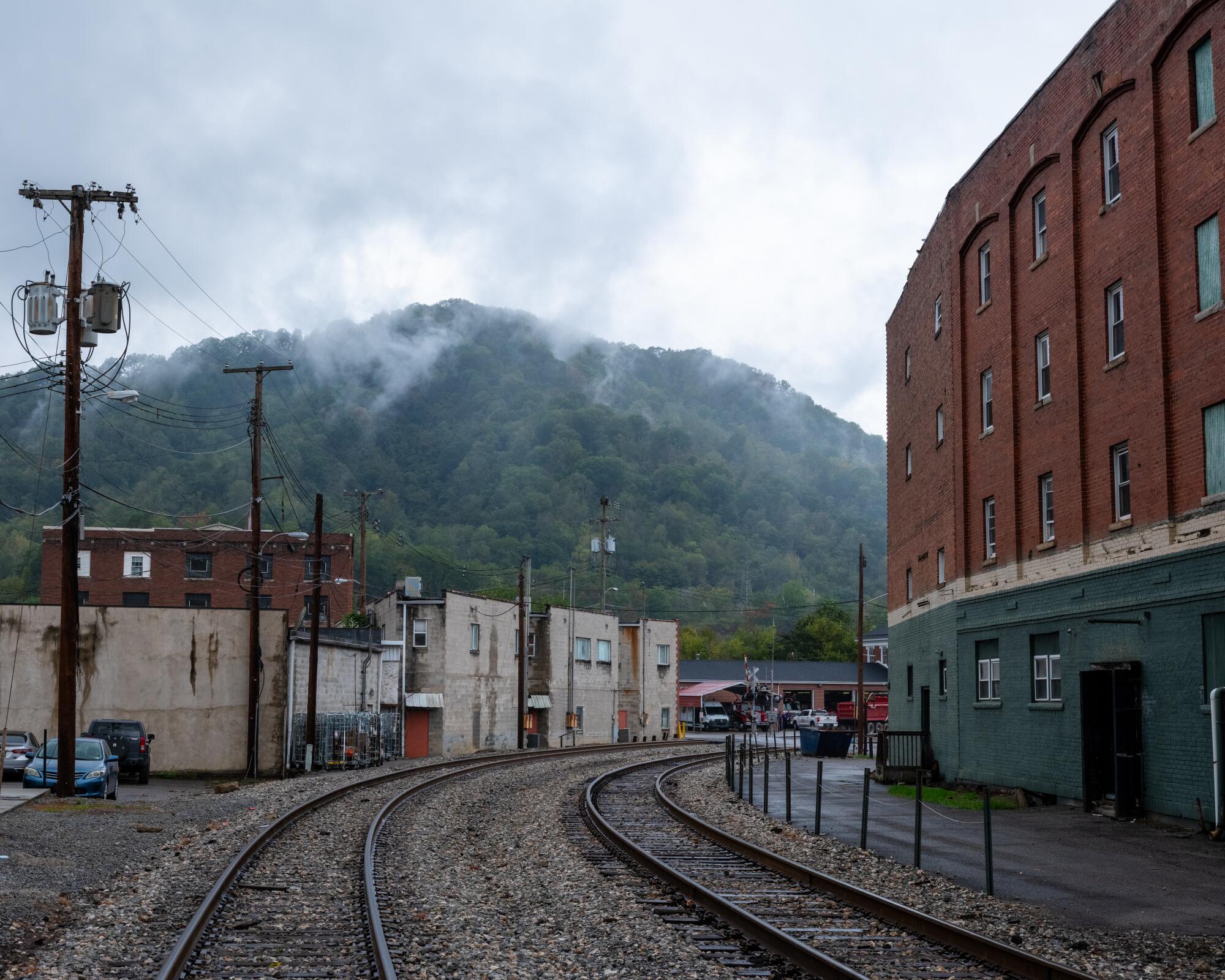
Downtown Logan, W.Va. Logan is the county seat of Logan County, where 24% of residents live in poverty.
(Roger May / For The Times)
While “Hillbilly Elegy” opens with a line promising that Vance is “not a senator, a governor or a former cabinet secretary,” it served as a political tool that helped get him where he is today, said McCarroll, of North Carolina.
“I think that is probably part of why Trump selected him — to bring a certain constituency in,” she said. “I do believe that he’s been using that Appalachian identity for a long time in order to differentiate himself.”
Last week, as JD Vance prepared to take the debate stage with Walz, Terra Vance drove along winding roads through mountain hollows draped with wild kudzu, past an abandoned company store in her hometown where generations of coal miners in her family once shopped and paid with scrip they were rewarded for their work in the mines instead of cash.
“Trump Vance 2024” signs and advertisements for church revivals dotted front yards.
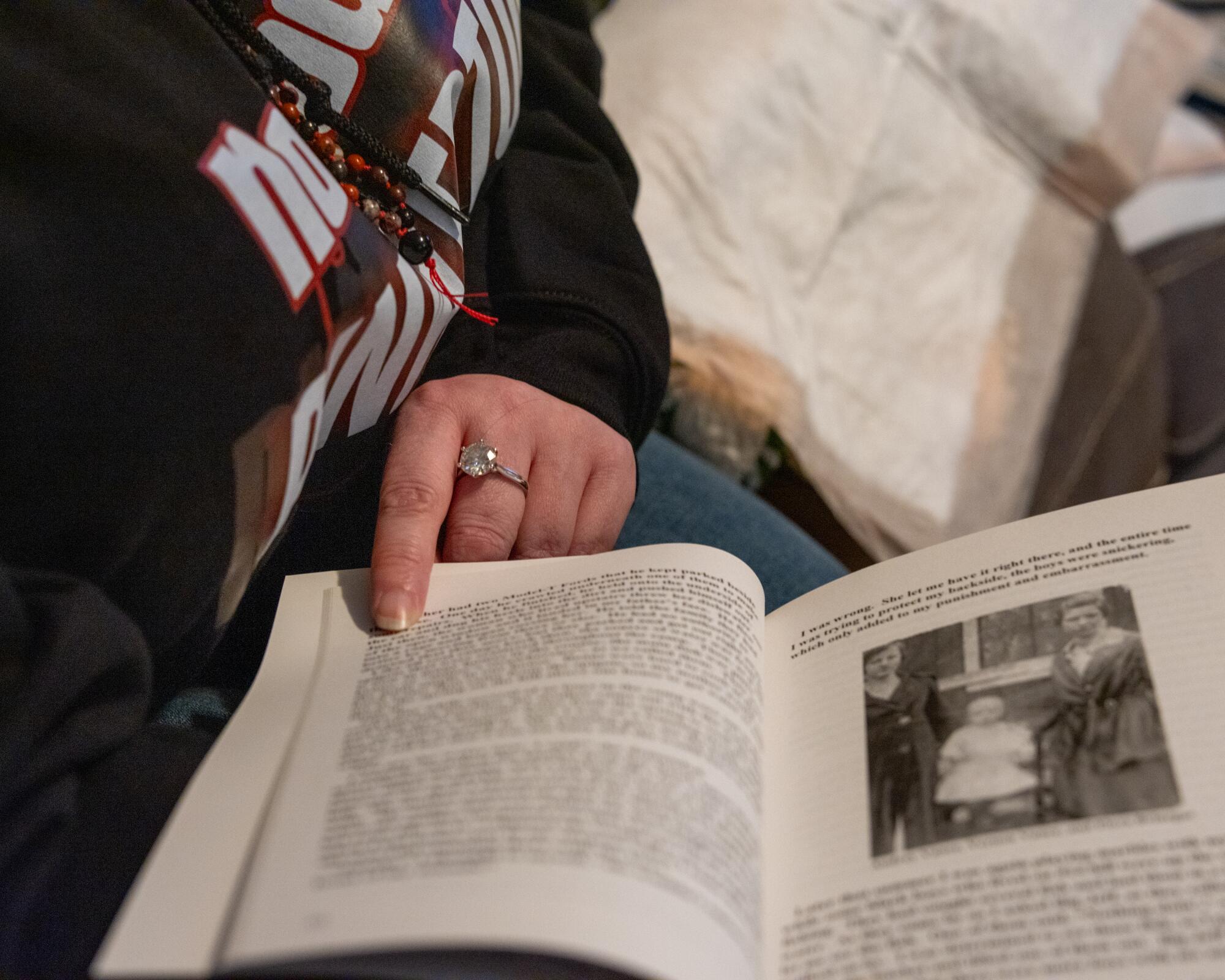
Terra Vance, a distant cousin of vice presidential candidate JD Vance, turns to a passage in a memoir written by her 96-year-old grandmother, Bertie Vance, at her home in Micco, W.Va.
(Roger May / For The Times)
She headed to her brother’s house to watch the vice presidential debate. Inside, a golden “V” for Vance sat atop a living room mantel.
On the TV, Vance answered a question about the deadly hurricane that had just rocked North Carolina, by touting his ties to Appalachia — a community he said he knows “very personally.”
“He has a Vance nose,” Terra said as she pointed to the screen.
“Don’t remind me we’re related to him,” her brother quipped.
In Logan County, where 24% of residents live in poverty, this Vance family — who plans to vote for Kamala Harris in November — is rare. Nearly 70% of voters in West Virginia chose Trump in 2020.
“It’s isolating,” said 26-year-old Faith Vance, Terra Vance’s sister-in-law. “If I say anything even remotely liberal, it’s an instant dogpile.”
Carlene Boggs, Terra Vance’s aunt, whose maiden name is also Vance, is a Republican who plans to vote for Trump again in November. She said she is too busy as a family caretaker to pay too much attention to politics but named immigration as a reason she opposes Kamala Harris.
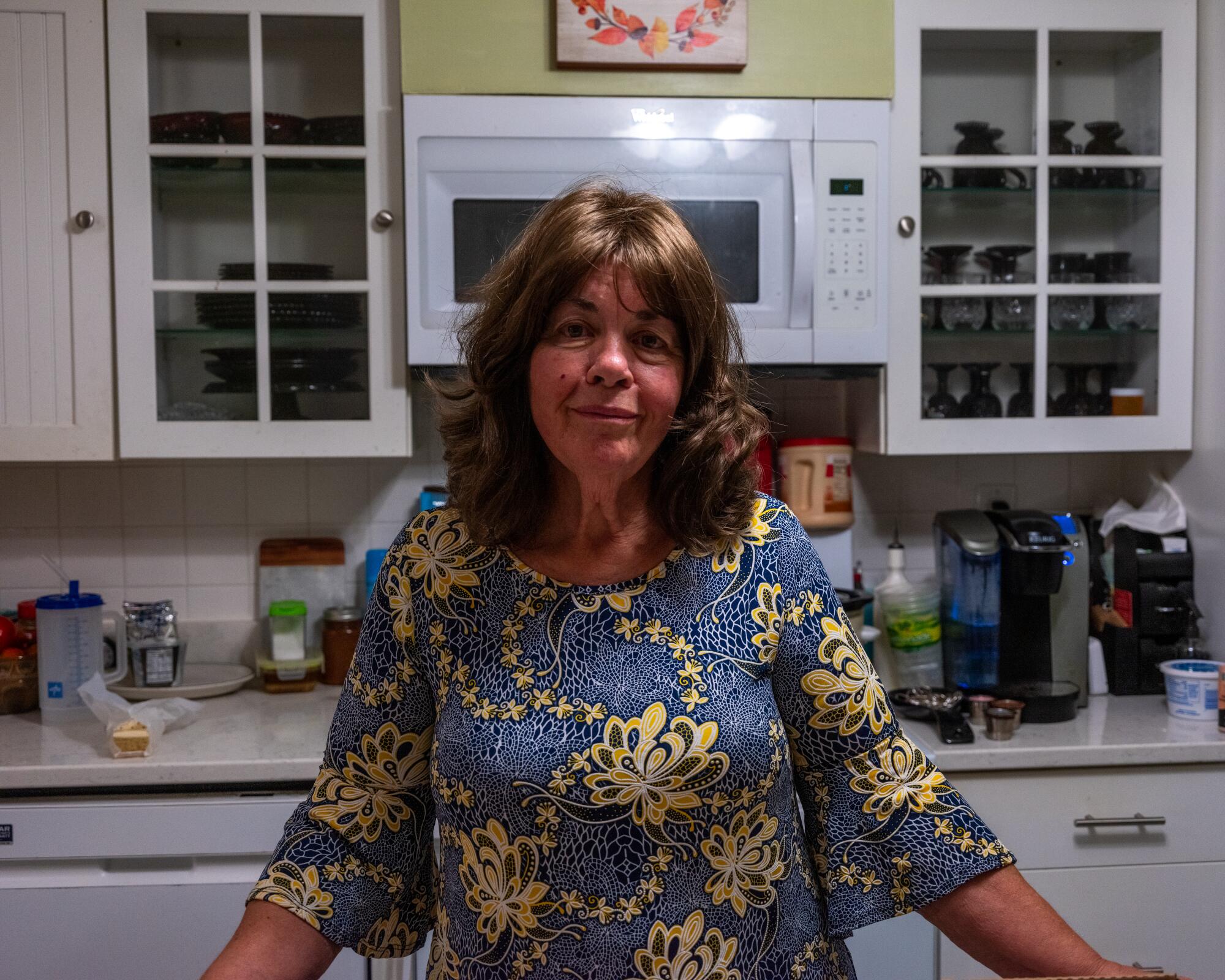
Terra Vance’s aunt, Carlene Boggs, 76, at her home in Logan County, W.Va. Boggs has authored her own books, including one about the 1974 Buffalo Creek disaster. She plans on voting for former President Trump and JD Vance.
(Roger May / For The Times)
Despite Trump’s history of lies, she trusts him.
“I think we were in much better shape when he was president,” the 76-year-old said. “I believe him. If he says something, I take it to the bank.”
Sharry White, who owns a local restaurant called Granny Jacks that serves cabbage rolls — an old coal miner favorite — is also voting for Trump. She’s not sure if whoever the president is can help combat the opioid epidemic that has devastated her community, but she’s worried about the cost of groceries and inflation as she runs a small business.
“It was better under his administration than it is now under Biden and Harris, especially the economy,” said White, 77.
Watching the debate and rooting for Walz, Terra Vance threw her hands up in frustration as the Republican candidate with whom she shares a last name defended some of his policies.
“Fact check him!” she shouted, calling JD Vance “a sellout” and “a method actor.”
She took out her phone and started posting her thoughts about the debate to her Facebook page. Quickly, it had more than 3,000 shares and hundreds of comments.
“Why have debates or elections if there’s no expectation of honesty?” she wrote.
That kind of “intentional political deception” was a hallmark of those in power “in the coal camps my and JD Vance’s recent ancestors occupied,” she added.
As Terra Vance’s following grows, so do her concerns for her safety.
Someone recently found her number online and called to say he planned to bury her in Springfield, Ohio — she had posted a takedown of JD Vance’s unfounded claims about Haitian immigrants there. As a poor hillbilly, she wouldn’t even be able to afford her own funeral costs, she said the caller told her.
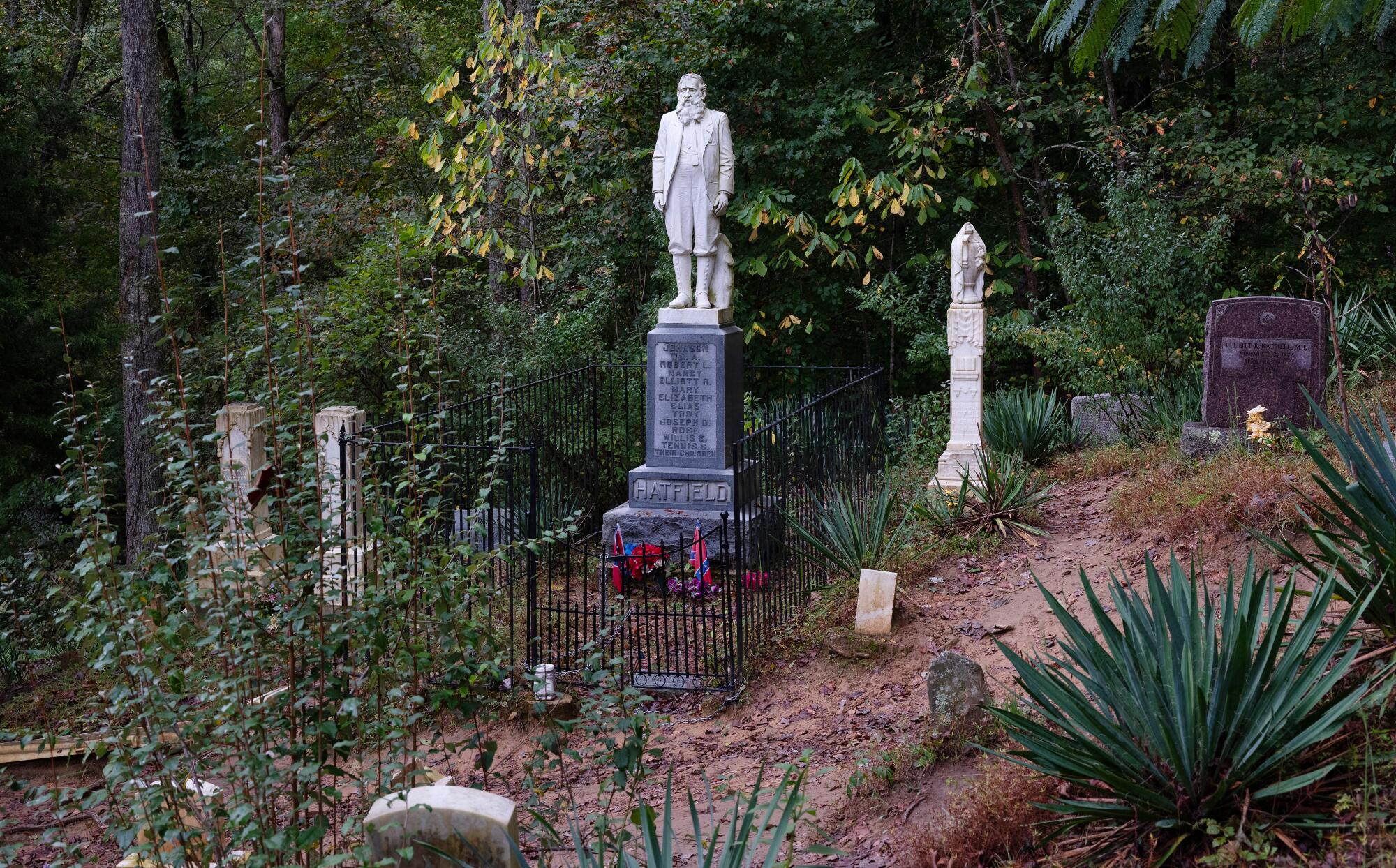
The grave of the Hatfield family patriarch, Devil Anse Hatfield, in Logan County, W.Va. Hatfield, the leader of one of two families entangled in the Hatfield-McCoy feud, was buried here in 1921. JD Vance mentions his ties to the feud in his memoir “Hillbilly Elegy.”
(Roger May / For The Times)
Just minutes from where Terra Vance watched the debate with her brother is a cemetery where some of her ancestors are buried. Devil Anse Hatfield — the patriarch who helped lead the infamous 1800s Hatfield-McCoy political feud — is buried there.
In his memoir, JD Vance mentions his own family ties to the same clan and their role in “one of the most famous family feuds in American history.”
While Terra Vance leads a sort of political family feud of her own, she acknowledges a rare moment in the book that she agrees with: The Vances are considered “hillbilly royalty.”
They remain at odds, though, over how to use that power.

